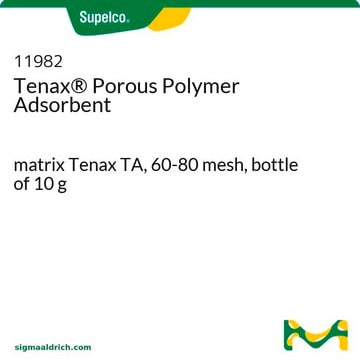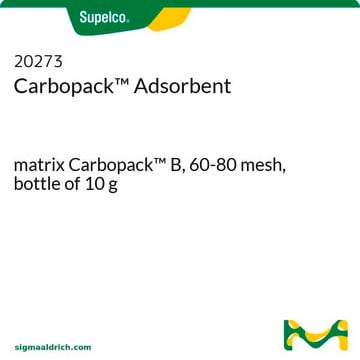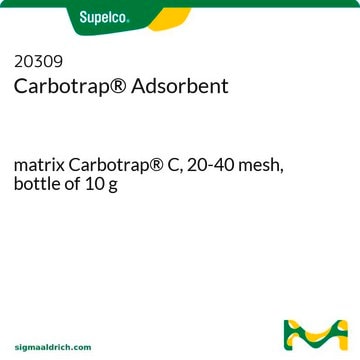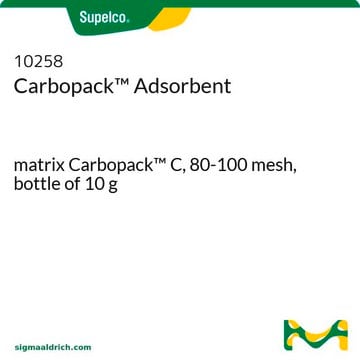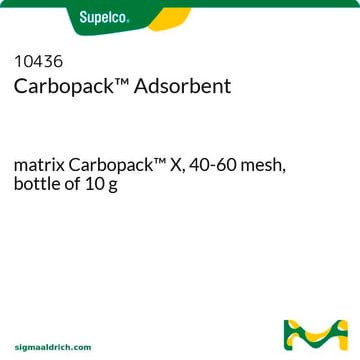20287
Carbotrap® Adsorbent
matrix Carbotrap® B, 20-40 mesh, bottle of 10 g
About This Item
Produits recommandés
Gamme de produits
Carbotrap®
Forme
granular
Conditionnement
bottle of 10 g
Technique(s)
LPLC: suitable
Superficie
~100 m2/g
Matrice
Carbotrap® B
Groupe de la matrice active
carbon
Taille des particules
20-40 mesh
Dimension de pores
0 Å pore diameter
~0 cm3/g macroporosity
~0 cm3/g mesoporosity
~0 cm3/g microporosity
Densité
~0.38 g/mL (free fall density)
Technique de séparation
reversed phase
Description générale
- Granular
- Friable
- Used for molecules with an analyte size relative to C3-C20+ n-alkanes
- Hydrophobic (can be used in high humidity environments)
Generally, GCB adsorbents offer weaker relative adsorptive strength compared to carbon molecular sieve (CMS) adsorbents, and similar relative adsorptive strength compared to spherical graphitized polymer carbon (SGPC) adsorbents. Our Carbotrap products are a type of GCB adsorbent.
- Particles are 20/40 mesh
- These large particles allow high flow rates without excessive pressure drops
For more information about any of our specialty carbon adsorbents, please visit sigma-aldrich.com/carbon
Informations légales
Code de la classe de stockage
11 - Combustible Solids
Classe de danger pour l'eau (WGK)
nwg
Point d'éclair (°F)
Not applicable
Point d'éclair (°C)
Not applicable
Équipement de protection individuelle
Eyeshields, Gloves, type P3 (EN 143) respirator cartridges
Choose from one of the most recent versions:
Certificats d'analyse (COA)
Don't see the Right Version?
If you require a particular version, you can look up a specific certificate by the Lot or Batch number.
Déjà en possession de ce produit ?
Retrouvez la documentation relative aux produits que vous avez récemment achetés dans la Bibliothèque de documents.
Les clients ont également consulté
Notre équipe de scientifiques dispose d'une expérience dans tous les secteurs de la recherche, notamment en sciences de la vie, science des matériaux, synthèse chimique, chromatographie, analyse et dans de nombreux autres domaines..
Contacter notre Service technique